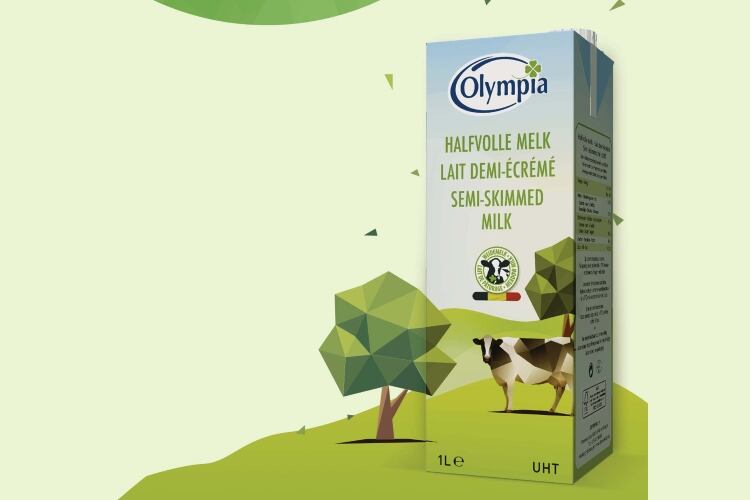Its UHT milk will be launched this spring in SIG’s combiblocMidi 1,000ml carton pack with SIGNATURE 100 packaging material.
SIGNATURE 100 packaging material from SIG is made from up to 82% FSC-certified renewable paperboard, sourced from sustainably managed forests. The certified polymers used to laminate the paperboard, and in the closure, are linked to forest-based renewable material through a mass-balance system. SIG uses tall oil as its forest-based renewable feedstock – a by-product of the paper industry – rather than a crop grown on agricultural land that could otherwise be used for food.
Kris Huygh, CEO at Olympia Dairy, said, “Following our installation of SIG’s fast and flexible CFA 812 filling machine last year – the first in Belgium – we were able to open up a new retail distribution channel for our liquid dairy products. Now we are playing another pioneering role in the European dairy market by being the first in Belgium to choose SIG’s SIGNATURE 100 packaging material with no aluminium layer. This sets a new benchmark in offering the most sustainable dairy products, which meet the needs of both retailers and our environmentally conscious consumers.”
Volker Bubacz, head of market area France, UK & Benelux at SIG, said, “Our close cooperation with Olympia Dairy offers another first for Belgium. By choosing our futureproof and sustainable solutions, such as SIGNATURE 100 packaging material, Olympia can provide the very best option in terms of sophistication, convenience and minimal environmental impact. In turn this will lead to improved brand image and long-term consumer loyalty.”

